|
In this Issue...
- NEW--IBNS Online Poster Sessions
- Introducing Newly Elected IBNS Officers and Councilors
- Neuroscientist Snapshots
- How to Update your Member Profile
- Member News
- IBNS 2021 Puerto Vallarta
Back to Top
NEW--IBNS Online Poster Sessions
We hope that you managing to stay healthy and connected during this difficult time. While we regret not being able to see you in person this year, we want to make sure you don't miss out on networking opportunities with friends and colleagues while discussing the latest science.
Online Poster Viewing Dates:
August 3-7, 2020 (Mon-Fri) Posters will be up for viewing and questions/answers
Who can submit an Abstract?
Any IBNS member or nonmember may submit an abstract for the Online Poster Sessions. Abstracts will be reviewed and must follow the guidelines set forth in the abstract form. You will be required to video-tape yourself giving the presentation and upload it (no worries--it will be easy).
What if I want to use my abstract accepted for the Glasgow meeting?
Great! It will be automatically accepted (no additional review process). However, you will need to submit it through the new online abstract form so that we know you want to participate!
Abstract Fees:
None. Zero. Free to members and nonmembers.
Abstract Deadline:
June 30, 2020
Where's the abstract form?
When you are ready to submit, click here: ABSTRACT SUBMISSION
How do I register to just view the posters?
Registration will be required for both presenters and attendees. REGISTER HERE
Registration Fees:
$15 Non-member trainee (student and postdoc)
$50 Non-member faculty
Free with membership
Not a member? Join IBNS--all members receive free participation in the poster session and a 25% discount on membership in 2021 (excludes multiple-year memberships). APPLY FOR MEMBERSHIP.
What if I have other obligations during the Poster Sessions, Aug. 3-7?
No problem! The IBNS Online Posters sessions are not "live" but "online".
Here's how it will work:
- Submit an abstract
- Abstract will be reviewed
- When accepted, you will receive additional instructions on how to upload your poster and video
- Upload poster and video of yourself presenting the poster just as if you had a live audience
- Registrants to the sessions will post Questions on our app.
- You will be able to Answer through our app and this can be done at your convenience during August 3-7. This will accommodate those in different time zones as well.
More questions, please contact the IBNS Central Office by email.
Back to Top
Introducing Newly Elected IBNS Officers and Councilors
Introducing Newly Elected IBNS Officers and Councilors
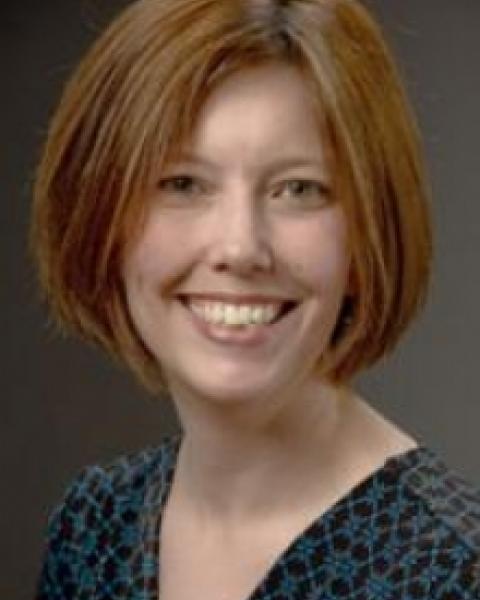 Dr. Jill McGaughy Dr. Jill McGaughy
President Elect
Professor of Psychology
Coordinator of the Neuroscience and Behavior Major
Faculty Fellow - Office of Engagement and Faculty Development
University of New Hampshire, Durham, NH
I received my BA from Bradley University in my home state of Illinois, and my MA and PhD from the Ohio State University with Martin Sarter. My first trip to Europe was to take a position at the University of Cambridge with Barry Everitt and Trevor Robbins. I was greeted by a very stern woman at Heathrow who said, “If all your papers aren’t in order, you are on the next plane home.” Thankfully they were and off I went. This opportunity to work as part of a vibrant team and travel was a great one. Before my return to the U.S., I lived in Glasgow for a few months. I look forward to getting back in 2022. I joined the faculty at University of New Hampshire in 2004 where I am currently a Professor of Psychology, the coordinator of the Neuroscience and Behavior Program, and a faculty fellow in the Engagement and Faculty Development Office.
My research is aimed at understanding the neural circuits underlying attention during development and how these circuits are disrupted in major neuropsychiatric disorders. My career has consistently been dedicated to improving the translational validity of rodent models of attention. My lab has shown that sub-regions of the rodent prefrontal cortex are analogous to that of primates and identified unique attentional impairments produced by early life insults like prenatal protein malnutrition. Because prenatal protein malnutrition remains a leading cause of emotional and cognitive impairments in adults, these studies are expected to inform treatment of many major neuropsychiatric disorders.
I’m very excited to be the President-Elect of this vibrant organization. I enjoy the collegial atmosphere of the meeting, emphasis on great science and the active support of young scientists. My experience in massive research institutions like the University of Cambridge to smaller universities like Bradley University, gives me an appreciation for the importance of linking researchers from both communities to fill critical gaps in the training of scientists. IBNS is an ideal environment to make these connections that benefit faculty and students alike. My work in faculty development supports faculty throughout their careers. I will use these skills to build on the excellent foundation provided by IBNS to support scientists at all stages of career development. My other major goal is to increase outreach to international scholars to emphasize the unique opportunities provided by IBNS.
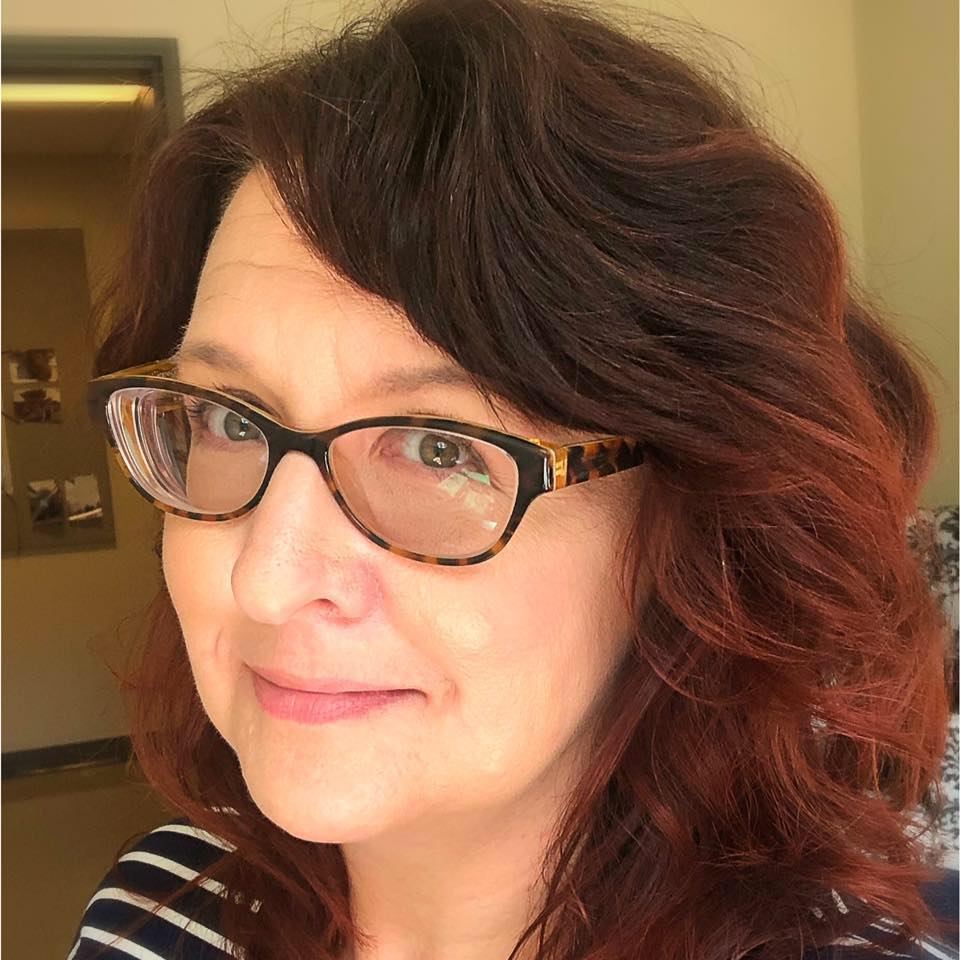 Dr. Kim Gerecke Dr. Kim Gerecke
Treasurer Elect
Associate Professor of Psychology and Behavioral Neuroscience
Randolph-Macon College
Ashland VA
I am an Associate Professor of Psychology and Neuroscience at Randolph-Macon College in the lovely Center of the Universe, Ashland, Virginia. I have been teaching, and doing research, in Behavioral Neuroscience with undergraduates for the last 12 years, and have been a member of IBNS since my Masters’ program. I study the toxic effects of chronic psychological stress in the brain, with an emphasis on how to protect the brain by increasing factors that confer resiliency. I have published a number of papers on the potent effects of exercise as being neuroprotective in models of Parkinson’s disease, and chronic stress. Not surprisingly, when I’m not working, I’m living my research, by hiking and kayaking.
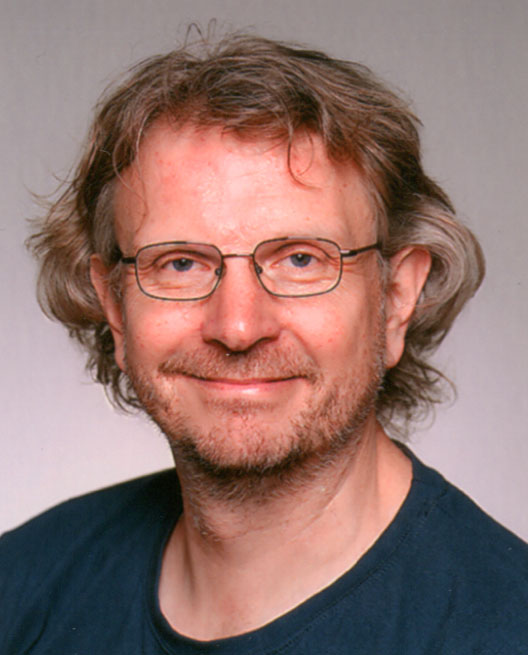 Professor Markus Fendt Professor Markus Fendt
European Councilor Elect
Faculty of Medicine, University Hospital Magdeburg
Magdeburg, Germany
I was born and grew up in Tübingen, a small city in South-Germany famous for its old university (founded in 1477). After finishing high school, I stayed in Tübingen to study biology and in 1997, I received my Ph.D. from the University of Tübingen. During my PhD project, I started to get interested in rodents’ behavioral endophenotypes of neuropsychiatric disorders. First, my focus was on the neuropharmacology of emotions and emotional learning. Later, I got interested in phenomena such as ssensorimotor gating and social behaviors, and more recently, in impulsivity and cognitive flexibility. After my postdoc which was in still in Tübingen but involved also research visits in Michael Davis’ group at Yale University, I had the chance to become a junior group leader in Tübingen. In 2006, I accepted an offer from Novartis Institutes for BioMedical Research and worked for six years as a senior researcher in Basel, Switzerland. When Novartis then decided to close their Neuropsychiatry unit, I remembered the good old times at the university and applied for positions in academia. Since 2012, I am a group leader and adjunct professor at the Institute of Pharmacology and Toxicology, Medical Faculty, Otto-von-Guericke University Magdeburg, Germany. Currently, my group consists of two research assistants, four PhD students, six MD students and four master students.
My first IBNS meeting was 2004 in Key West where Bob Blanchard, Robert Adamec and Iain McGregor organized a satellite on defensive behavior. I was deeply impressed by this symposium –where I also got chance to give a talk- and the whole IBNS meeting. I was not only impressed by the excellence research presented at the meeting but also by all the nice scientists behind this research and the relaxed atmosphere of the meeting. Therefore, I visited also the next IBNS meeting in Santa Fe, this time with my wife and our freshly born son. Meanwhile, I visited all in all nine IBNS meetings on five continents, was 2017 promoted to an IBNS Fellow, and now, I feel really honored to serve the society as an European Councilor. I am looking forward for the next meetings.
In my spare time, I love to spend time in nature. Either during running (every 2-3 days) or during bird watching which is currently my favorite activity on the weekends. Unfortunately, I totally failed in fascinating my family for science. However, this has the advantage that my spare time is free of science but enriched with visits of puppet theater shows (my wife is a puppeteer) or hiphop dance performances (my daughter is a hiphop dancer).
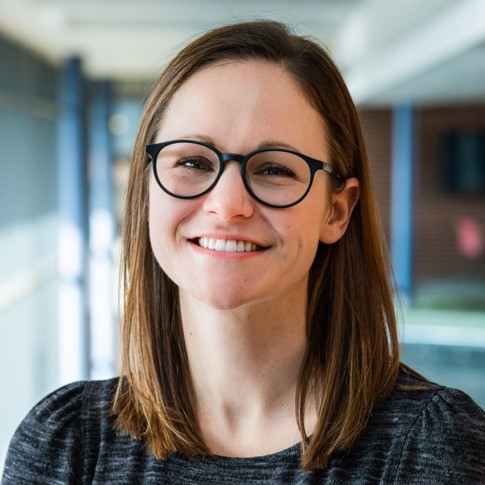 Dr. Janine Kwapis Dr. Janine Kwapis
USA Councilor Elect
Assistant Professor of Biology
Pennsylvania State University
University Park, PA 16802
I am currently an Assistant Professor of Biology at Pennsylvania State University. I earned my Ph.D. in behavioral neuroscience at the University of Wisconsin-Milwaukee with Dr. Fred Helmstetter and completed a postdoc in molecular neuroscience with Dr. Marcelo Wood at the University of California, Irvine. My lab studies the epigenetic and molecular mechanisms that underlie long-term memory and age-related cognitive decline. My work has shown that individual circadian genes function in the dorsal hippocampus to modulate memory across the 24h day, a process that is disrupted in old age. My lab uses a combination of sophisticated behavior and cutting-edge molecular techniques to manipulate individual genes and epigenetic mechanisms during distinct phases of memory formation. I am passionate about mentoring and promoting diversity within science and looks forward to improving these aspects within IBNS. In my spare time, I enjoy reading, trying to garden, and hanging out with my 2-year-old daughter.
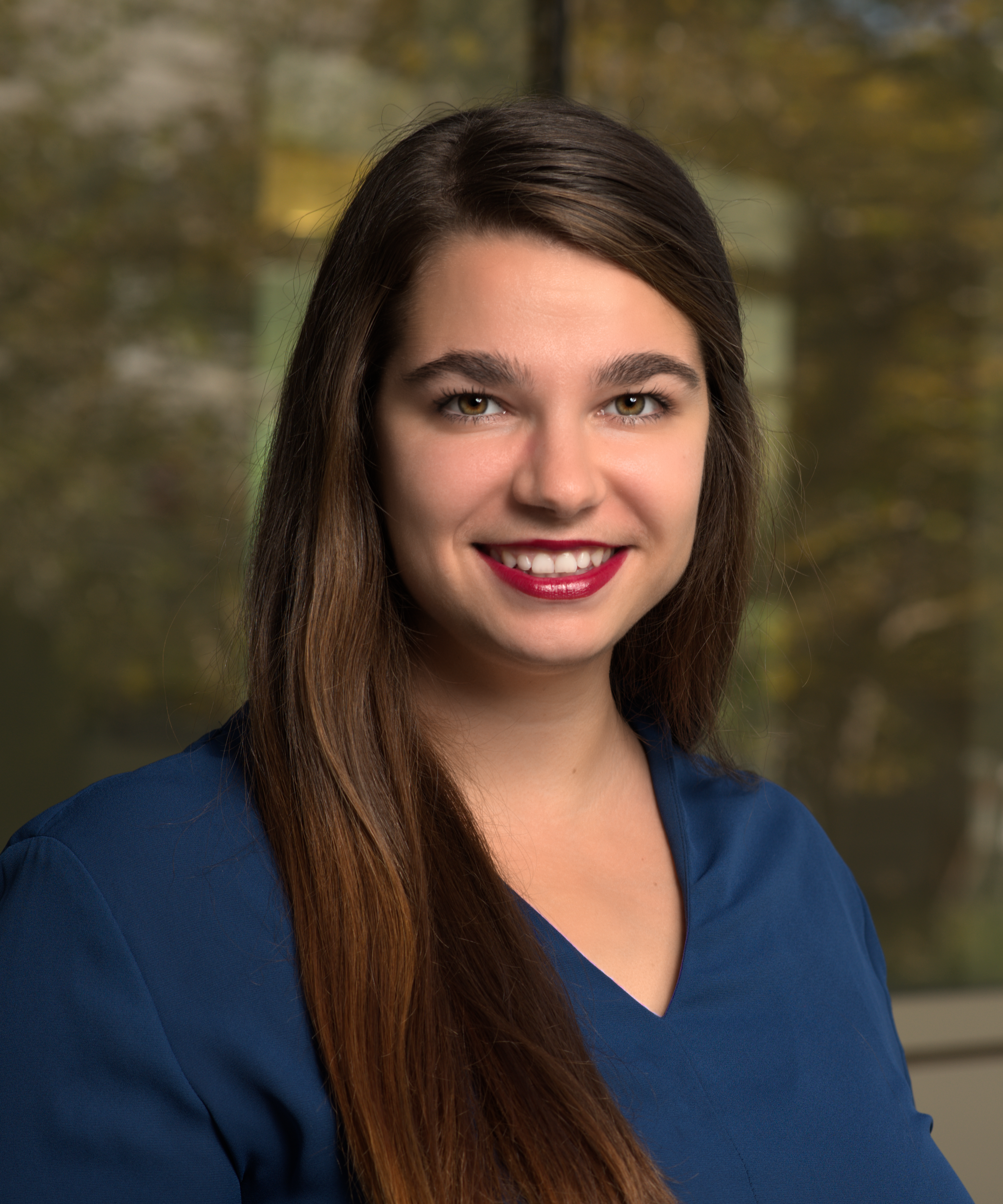 Stela Pavlova Petkova, Graduate Student Stela Pavlova Petkova, Graduate Student
Trainee Councilor Elect
University of California, Davis, MIND Institute,
School of Medicine, Department of Psychiatry and Behavioral Sciences,
Sacramento, CA, USA
Hey everyone. Once again, I’d like to say thank you for voting for me and say I’m so excited to serve as a Trainee Councilor this year!
I first got entangled in behavioral neuroscience as a research assistant for a summer at the Medical University of South Carolina, studying effects of morphine and withdrawal on fear conditioning in Dr. Arthur Riegel’s lab. After the summer, I returned to Wellesley College, and started an independent research project with a professor, just to “gain some experience” for medical school applications. For three years, under Dr. Sharon Gobes, I studied neural correlates of vocal learning in zebra finches. I absolutely fell in love with research and working with a model that mimicked so well a human experience. I couldn’t keep lying to myself and admitted, I would much rather stay with research than go to medical school.
In applying to graduate school, I had myself convinced I wanted to work with humans. But ended up, very happily, still working with small animals by joining Dr. Jill Silverman’s lab at the University of California, Davis. In her lab, I learned to put words to the values I held dear in research like translation. One thing that has never wavered throughout my research career is my interest in development and models of both normal and abnormal behavioral development. My current research studies neonatal developmental behaviors, in addition to adult behavior, and their link, specifically in mouse models of genetic neurodevelopmental disorders. I fell in love with behavioral neuroscience for NDDs and it never fails to excite and drive me. As a naïve youngster, I hope to commit my career to endeavors in the field.
At IBNS 2019, I found myself eager to go to every talk and poster, running out of time to relish all the amazing science. I knew then I wanted to play a role in the society, and I am excited to get the chance now. I can’t wait to see everyone at the next chance we get!
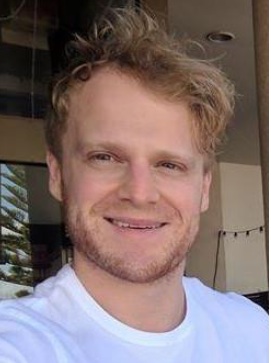 Dr. Nicholas Everett Dr. Nicholas Everett
Trainee Councilor Elect
PostDoc, University of Sydney, Australia
I completed my PhD in under Prof Jennifer Cornish at Macquarie University, Australia, where I investigated the behavioural and neurobiological effects of the neuropeptide oxytocin as a therapy for methamphetamine addiction. I am now a Post-Doctoral researcher in the lab of A/Prof Michael Bowen at the University of Sydney, where I am researching the neurobiology of opioid withdrawal; developing withdrawal therapies; and identifying the neural mechanisms by which these therapies work. I am also involved in projects investigating the oxytocin system in sleep disturbances, and the use of cannabidiol as an opioid withdrawal therapy, and machine-learning analysis of withdrawal symptoms.
My research uses rodent models of drug addiction, primarily intravenous drug self-administration in conjunction with neurobiological techniques including immunofluorescence, microinjections, fibre photometry, and DREADDs. A recent emphasis has been in vivo recording of neural substrates involved in addiction and withdrawal, to evaluate the efficacy of novel addiction therapies at the circuit level.
Back to Top
Neuroscientist Snapshots
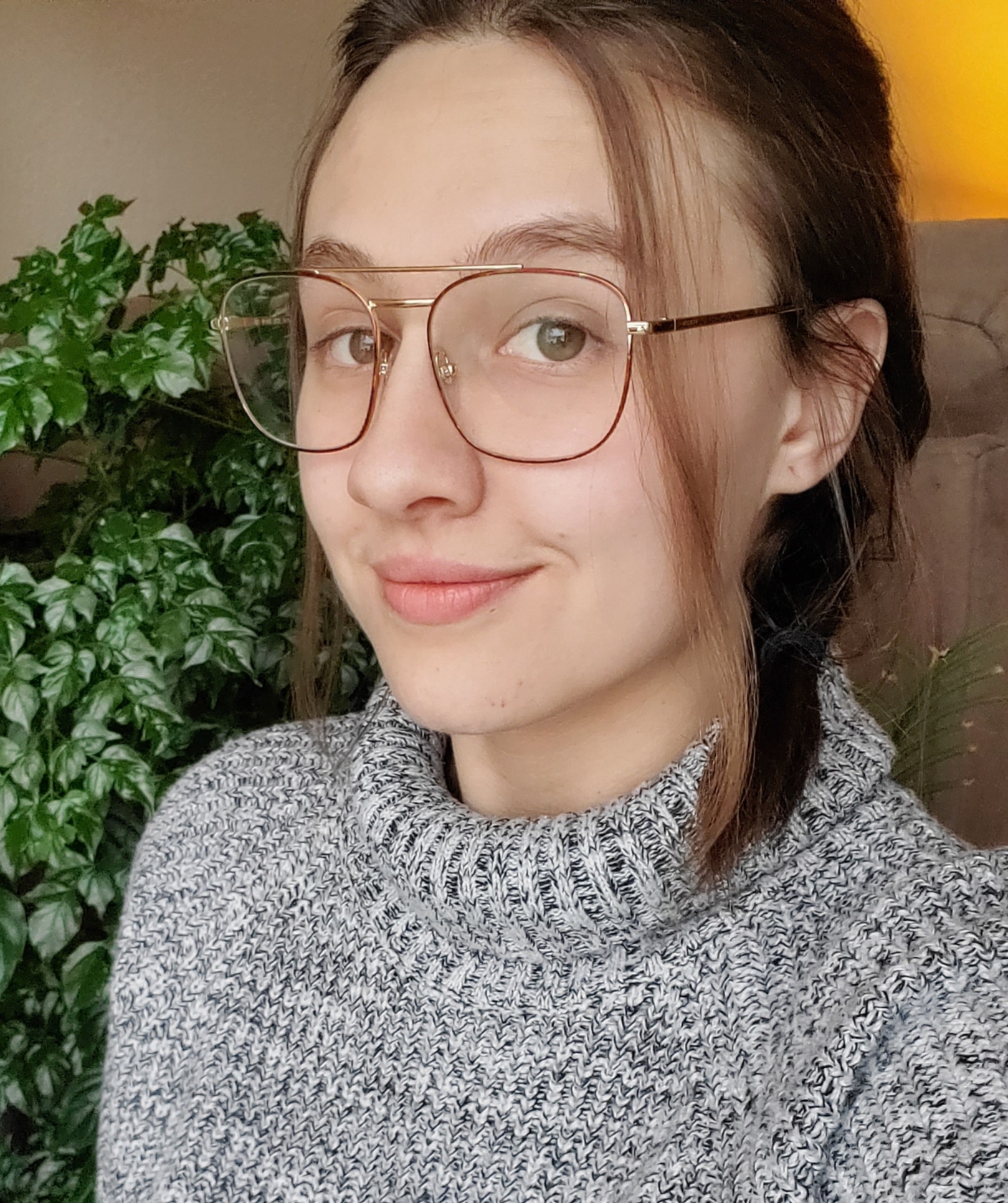
Neuroscientist Snapshots by Brighid Erika Bradsley
Brighid Erika Bardsley is a recent graduate of the University of Colorado, Boulder’s undergraduate neuroscience program. Beginning her research career with neofascism cataloguing and cross-race facial recognition at CU, she currently works as a research coordinator focusing on early childhood language development. She intends to continue her research in cross-race social deficits and neofascism with graduate school in the future.
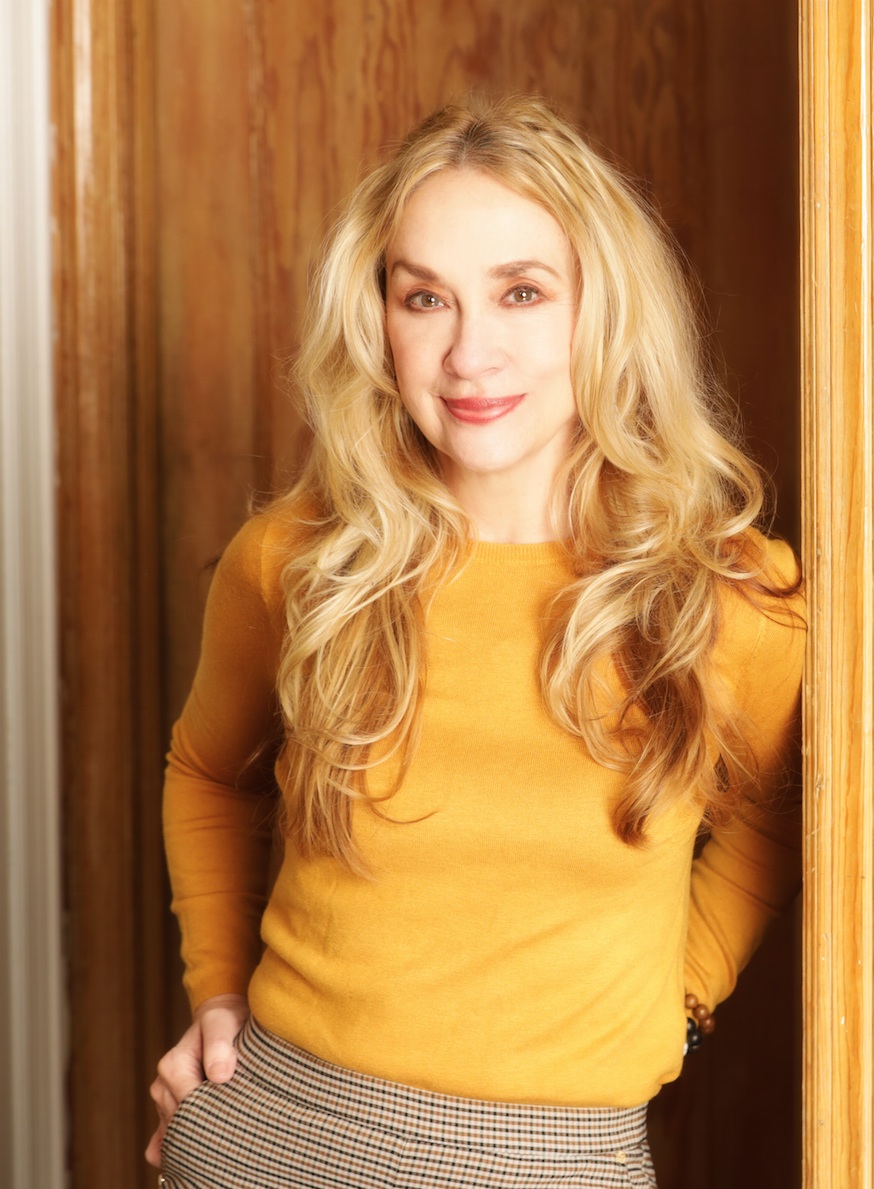 Tracey J. Shors, Ph.D. Tracey J. Shors, Ph.D.
Distinguished Professor
Director of Graduate Studies & Vice Chair
Department of Psychology, Center for Collaborative Neuroscience
Rutgers University, New Jersey, USA
Despite the gratification we find ourselves in Neuroscience, it can be rare to see the fruits of our work transform the lives around us. Tracey Shors, however, has successfully transformed her research to fit into the lives of those around her. Following the hippocampus from the very start, she successfully manned the helm of neurogenesis before eventually exploring how the average person could influence it. Her cutting-edge training is something we’re all excited about, but there’s more backing Dr. Shors than just her work today.
Years before fostering neuronal livelihood in the lab, she knew her future would reside in the study of the human mind. Despite her brother following a similar path into the sister field of biology, she forged ahead studying what makes the human mind tick. Her undergraduate career was defined by her dual interests in biology and psychology, the two teachings of which she would come to combine in her graduate and post-graduate careers.
The two-year break between undergraduate and graduate school was only fuel to her fire as she came ready to explore school once more. A short rest from academia wasn’t without its lessons though, as Dr. Shors spent her time learning the value of collaboration and a healthy life-work balance – something she’s been actively encouraging in graduate students and other members of academia ever since. Acknowledging the detriment an unhappy environment or a rushed career path could cause is always on her hot plate, and it’s not a far stretch to say this compassion is the same that drives her work.
As development of Dr. Shors’ MAP training quickly moves from theoretical to practical, the trial for her has become less of an inventive battle to more of a lifestyle one – taking your work from the lab to the real-world is no light task. Overcoming every challenge she faces, Dr. Tracey Shors has entered a new era of neuroscience. Between authoring a book about trauma and starting new research into helping psychosis patients, she continues to expand her’s and our’s understanding of the world within is.
Dr. Shors will be giving the Bench-to-Bedside Keynote talk at the IBNS meeting in Puerto Vallarta, June 1-5, 2021.
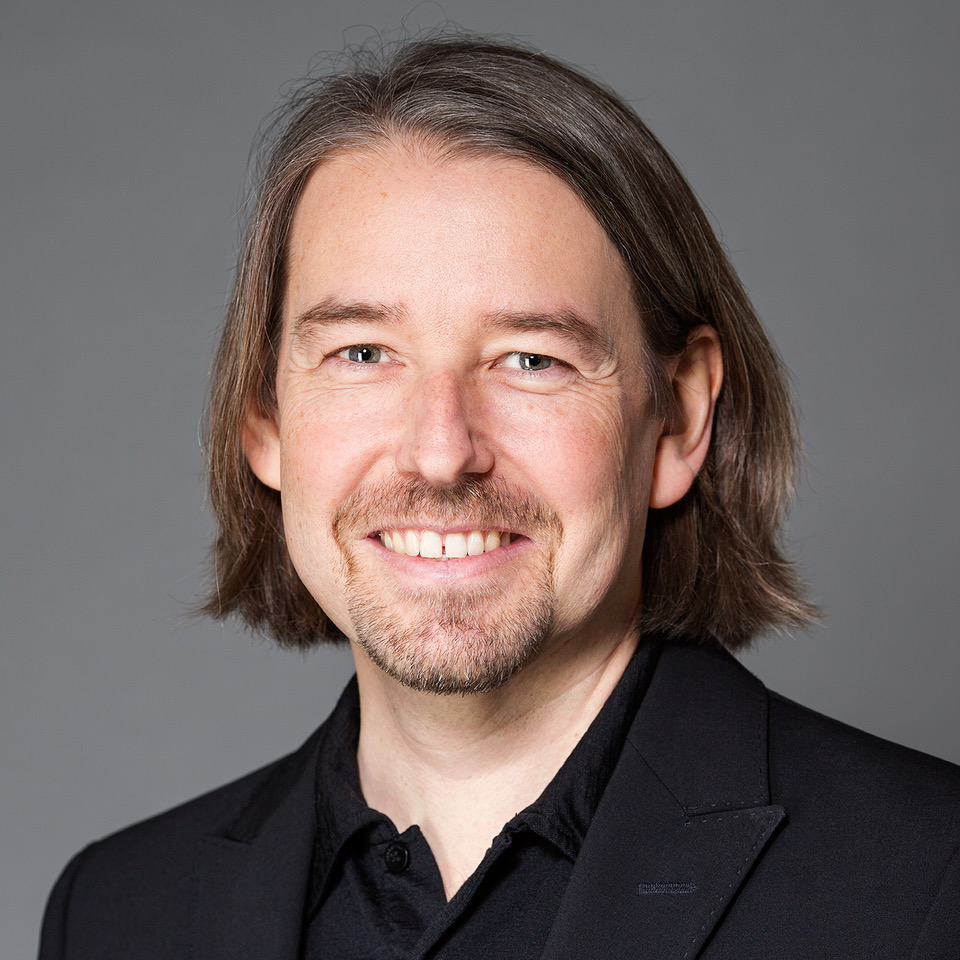 Christian Keysers, Ph.D. Christian Keysers, Ph.D.
Department Head, Social Brain Lab
Netherlands Institute for Neurosciences and
Professor for Social Neuroscience, University of Amsterdam, Dept. Psychology, Amsterdam, The Netherlands
Dr. Christian Keysers is an accomplished social neuroscientist and an award-winning author. As humble as he is cordial, Dr. Keysers has wasted no time defining himself in the field. Examining the relationships between neural activity and emotional perception has already made waves in the research community but extending his research to dysfunctions in the same processes is a fresh take on old disorders. Dr. Keysers started his career strong long ago, and surely isn’t losing pace yet.
Working across thousands of miles and multiple countries, he began his quest for knowledge studying psychology for undergrad before visiting Boston to explore Neuroscience. Ultimately getting a breadth of his future field, he spent the next few months grounding his abilities in the lab. Investigating insect physiology was crucial practice to mastering some of the most-used techniques that would later build his own thesis. Far from his only inhuman subject, watching animals experience empathy would begin to shape his human studies.
Though we can’t see it, there’s no doubt we can all certainly feel Dr. Keyser’s patience studying emotion with non-verbal subjects. Between teaching and research, finding time to sleep is hard enough – let alone time to travel the world and educate others about his work. Ever the adventurous, Dr. Keysers is sure to change the way we all see one another.
Dr. Keysers will be giving an IBNS Keynote presentation at the IBNS meeting in Glasgow, June 2022.
Back to Top
How to Update Your Member Profile
|
First things first: If you have forgotten your password, no worries! Click 'forgot your password' or 'forgot username' and enter the email address associated with your profile. You will then be emailed a link to reset your password. To receive the link via email, the email address you enter must be the email address in your membership profile.
(TIP: A lot of users choose to use their email address as username)
|
|
What Can I Do on My IBNS Profile after login?
- View your Profile
- View/Pay Invoices
- Access the Member Directory
- View the Event Calendar
- Access to Social Community Features
- View any members-only content
- Interact and connect with other members
Clicking on 'My Profile' will take you to your page. There, if you hover over the words 'My Profile,' you can make additional changes to your profile. In this area, you can:
- Change your profile picture that shows on the Member Directory
- Edit your privacy settings
- Change your password
- Manage how we contact you
- Visit past emails we have sent you
- View a list of all your invoices
- View all forms that you have submitted
|
|
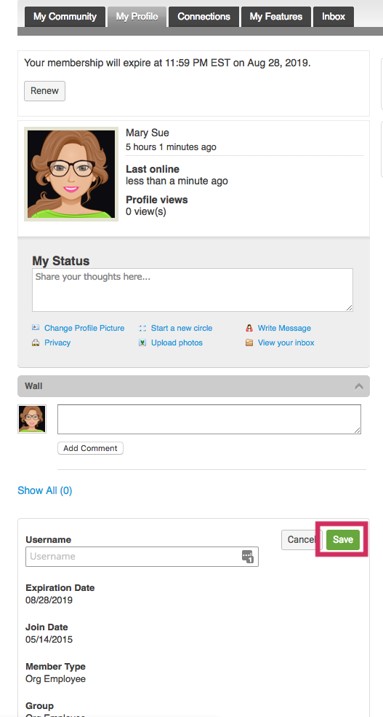 My Profile My Profile
These fields show you what information we have now. Please fill in any blanks (or update info) so that we can know you as well as possible.
Information here can help us with the communications we send out.
Adding Keywords is a great way to see who else in the organization studies similar topics for networking, job searching, etc. It can also help the IBNS News team find members with expertise in certain areas to write articles for the newsletter.
Make sure to click 'Save' at the end of the process!
|
|
Message History
Under 'My Profile,' Message History area will show you all of the emails IBNS has sent to your personal inbox. If you ever delete an email, there is a full record kept in this area of your profile. Simply click on the subject line to open the body of the email.
View Your Invoices
Under 'My Profile' you have the ability to display your invoices. This area will show you past paid invoices and open invoices that you are able to pay. To open any invoices, simply click on the Invoice ID to view.
Pay Your Invoices
Once you have clicked on the Invoice ID, you have the option to pay an open invoice or download an invoice. Paying an invoice couldn't be easier! Simply click on the 'Pay Invoice' button at the bottom of your invoice. Our payment area will come up for you to enter your card and billing information.
|
|
Member Directory
Under the 'Connections' tab, click 'Browse Directory'. The Member Directory can be valuable in connecting you with other members. To update what displays for your profile in the directory listing, please edit your profile.
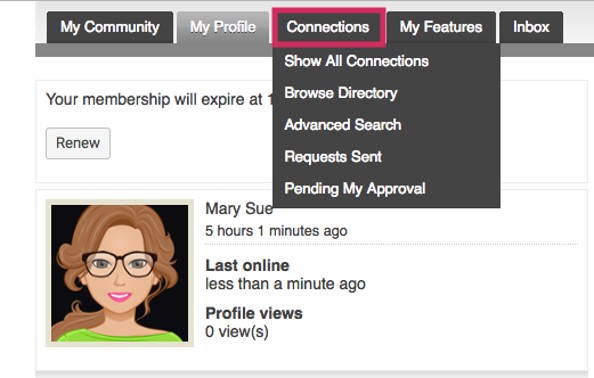
The 'Connections' tab provides the opportunity to connect and build relationships with other members. You can:
- See all your connections with other members
- Browse the directory
- Search for members
- View your connection requests with other members
- See requests from other members to connect with you
|
|
How to Renew Your Membership
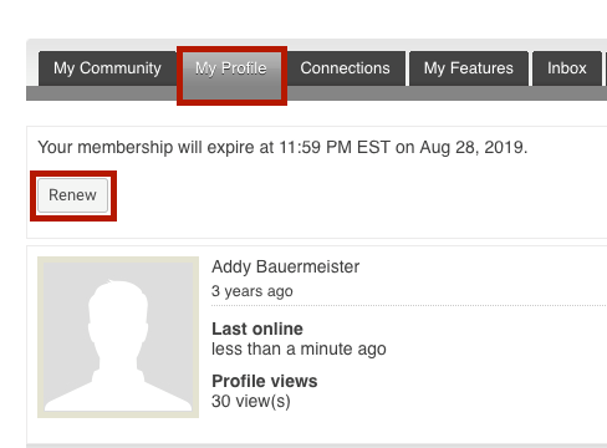
You can renew your membership in one of three ways:
- By paying the auto-generated Renewal invoice tied to their renewal notification
- By logging in and submitting a Renewal Form
- This allows you to update your information. Once complete, a renewal invoice will be emailed to you. Note: In order to renew, you must have received an renewal email notification
- By logging in and using the Renew option from the My Profile page
- Log in
- Navigate to 'My Profile'
- Click 'Renew'
Once you have clicked submit. You will be taken to your renewal invoice to pay.
Paying an Invoice: Paying an invoice couldn’t be easier. Simply click on the button at the bottom ‘Pay Now.' Our payment area will come up for you to enter your card and billing information.
Should you have any questions (or when all else fails), please contact the IBNS Central Office for assistance.
Thank you for your membership. We appreciate you!
|
Back to Top
Member News
Significant Events and Milestones
Congratulations to Dr. Kim Gerecke, the newly elected Treasurer of IBNS, upon receiving tenure!
Congratulations to Dr. Cliff Summers, Fellow and Lifetime member of IBNS, upon being named Norlop Professor in the College of Arts and Sciences, University of South Dakota!
(https://www.usd.edu/news/2019/mabee-and-summers-earn-named-professorships-in-biology)
Congratulations to Dr. Jill Silverman, IBNS member and Associate Professor, Department of Psychiatry and Behavioral Sciences, and Dr. David Segal, Professor of Biochemistry and Molecular Medicine at the University of California, Davis MIND Institute upon receiving a $3 million grant from the Foundation for Angelman Syndrome Therapeutics (FAST) to pursue treatments for that neurologic disorder.
Awards and Recognition
Dr. Stan Floresco has been awarded the UBC (University of British Columbia) Killiam Teaching Prize for teaching excellence. Dr. Floresco is a professor in the Department of Psychology and conducts research at the Djavad Mowafaghian Centre for Brain Health.
(https://www.centreforbrainhealth.ca/news/2020/04/30/dr-stan-floresco-receives-ubc-killam-teaching-prize)
Ms. Marianne Van Wagner, Executive Director of IBNS Central Office as well as owner and CEO of the Society Offices Association Management Company, was recognized as a member of Connect Association magazine’s “15 Over 50.” The honor highlights the top professionals in the events industry. Connect Association is a national, B2B magazine that provides resources and ideas to professionals and planners in the meetings and events industry.
Back to Top
IBNS 2021 Puerto Vallarta
Save the Dates June 1-5
Need inspiration...watch our PV video by clicking the photo below. Did you know that IBNS has its own YouTube channel...you can see past speakers, hear from members, revisit previous meeting venues.
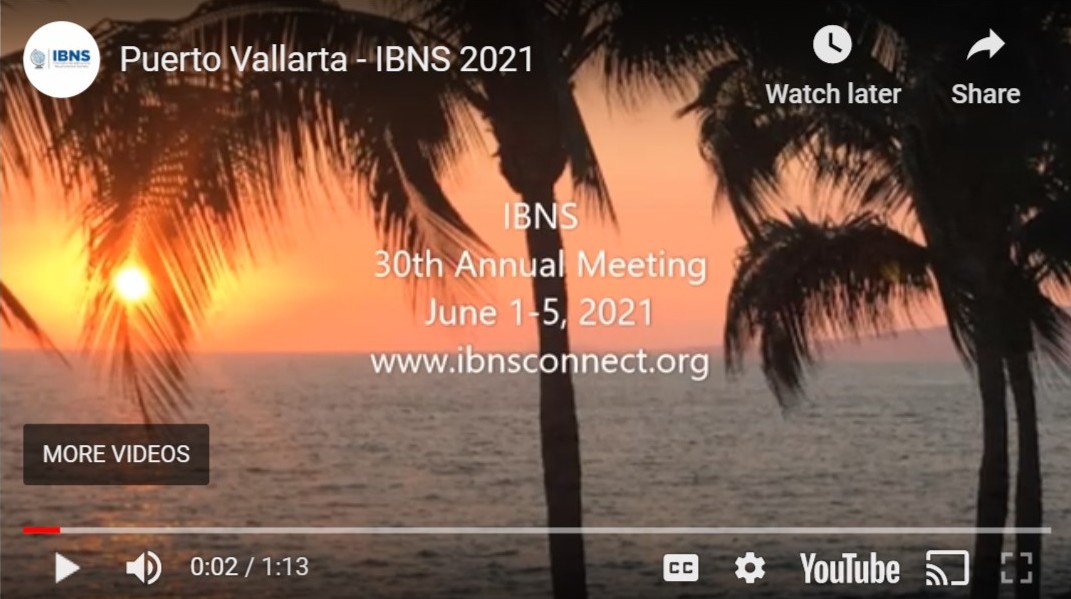
Announcing IBNS 2021 Keynote Speakers:
Marina Picciotto, Yale University, Presidential Lecture
Tracey Shors, Rutgers University, Bench-to-Bedside Lecture
Kay Tye, Salk Institute, Keynote Lecture
Gina L. Quirarte, UNAM, Keynote Lecture
Important Dates:
Symposia Proposals Due - October 1, 2020
Travel Award Applications Due - December 6, 2020
Abstract Deadline - February 3, 2021
Calling all Potential Guest Editors!
The IBNS Newsletter is searching for volunteers to serve as guest editors during 2020. This is a wonderful chance to make friends and influence your colleagues, so do not let this opportunity pass you by! If you are interested, please contact the IBNS Central Office ([email protected]) or the Editor-in-Chief, Don McEachron ([email protected]). Please help to support the IBNS community of scholars by serving as the guest editor for a newsletter in 2020.
Back to Top
|
|
IBNS Central Office | 1123 Comanche Path, Bandera, TX 78003
[email protected] | www.ibnsconnect.org
    
|
|
|